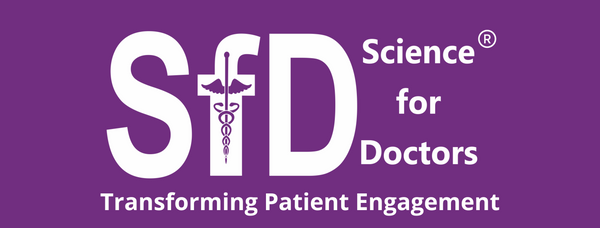
The Transformative Role of AI in Modern Healthcare: Enhancing Doctors' Abilities
Share
Artificial Intelligence (AI) has become a powerful tool across industries, and in healthcare, it is proving to be a game-changer. For doctors, AI is not about replacement but about empowerment—offering tools to improve diagnosis, streamline treatment plans, personalize patient care, and ultimately save lives. Here’s a look at how AI is transforming the way doctors practice medicine and what it means for the future of healthcare.
1. Enhanced Diagnostic Accuracy
One of the most powerful applications of AI in healthcare is in medical imaging and diagnostics. AI algorithms, especially those built on machine learning and deep learning, are capable of analyzing vast datasets, recognizing patterns, and identifying abnormalities in medical images such as X-rays, MRIs, and CT scans.
For example, AI systems are used to detect conditions like cancer, lung diseases, and even neurological disorders by scanning and comparing millions of medical images. These AI-powered tools can detect subtle details that may escape the human eye, enabling early diagnosis and increasing the chances of successful treatment. For doctors, this means access to a “second pair of eyes” that can validate findings, reduce diagnostic errors, and improve patient outcomes.
2. Personalized Treatment Plans
AI algorithms can analyze a patient’s medical history, genetic data, lifestyle, and environmental factors to provide personalized treatment recommendations. Precision medicine is an emerging approach to treatment that tailors interventions specifically to the individual patient, and AI is at the heart of it.
For instance, AI can help oncologists identify the best course of treatment for cancer patients based on genetic factors and tumor markers. Additionally, AI-driven platforms are being developed to predict how patients will respond to certain medications, minimizing adverse reactions and increasing treatment effectiveness. Doctors can now go beyond a “one-size-fits-all” approach, offering care that is customized and more effective.
3. Streamlining Administrative Tasks
Doctors are often burdened with administrative work—documenting patient notes, filing reports, and handling billing—tasks that take time away from patient care. AI solutions, particularly those involving Natural Language Processing (NLP), can automate much of this work, allowing doctors to focus on their patients.
Voice recognition software, for example, can transcribe doctor-patient conversations, update electronic health records (EHRs), and summarize patient encounters without manual input. This automation reduces burnout, increases productivity, and allows doctors to dedicate more of their time to what they do best: patient care.
4. Predictive Analytics for Preventive Care
AI’s predictive capabilities are invaluable in preventive medicine. By analyzing patient data, AI systems can identify patterns that may signal the onset of a disease before it manifests symptoms. For example, AI algorithms can analyze lab results, lifestyle data, and genetic markers to predict a patient’s risk of developing conditions like diabetes, heart disease, or stroke.
With these insights, doctors can proactively address potential health issues, recommending lifestyle changes, monitoring, or early interventions that could prevent the disease from progressing. Predictive analytics is reshaping the role of doctors from reactive to proactive, shifting the focus toward prevention and health optimization.
5. Virtual Health Assistants and Telemedicine
AI-powered virtual health assistants are becoming a key asset in telemedicine, offering support to both patients and doctors. These assistants can answer basic patient inquiries, provide medication reminders, or assist in remote monitoring for chronic diseases. During a telemedicine consultation, AI can provide real-time data analysis, helping doctors make informed decisions even from afar.
Telemedicine, supported by AI, also makes healthcare more accessible, especially in remote and underserved areas where medical professionals may be scarce. Patients can access high-quality care without the need for frequent hospital visits, and doctors can monitor more patients efficiently.
6. AI in Surgical Procedures
In the operating room, robot-assisted surgery is one of the most advanced applications of AI. Robotic systems, powered by AI algorithms, assist surgeons in performing complex procedures with greater precision and control than is possible with traditional methods. For instance, AI-powered robotic arms can make micro-movements that are otherwise difficult for human hands, reducing the risk of human error and shortening recovery times.
AI systems can also assist surgeons in planning procedures by simulating surgeries on 3D models of a patient’s anatomy, allowing for a detailed analysis of the approach before entering the operating room. Surgeons can use these simulations to improve surgical accuracy and minimize potential complications.
7. AI for Better Patient-Doctor Communication
AI-powered tools are helping bridge communication gaps between doctors and patients. Chatbots, for instance, can answer routine health questions, schedule appointments, and even remind patients of their medication schedules. These tools enhance doctor-patient interactions by keeping patients informed and engaged, while freeing up doctors to focus on more complex cases.
Moreover, by gathering real-time data from patients, AI can facilitate informed discussions, helping patients feel more empowered and involved in their care. When patients feel understood and supported, they are more likely to follow through with treatment plans and preventive measures.
8. Challenges and Ethical Considerations
Despite its benefits, the integration of AI in healthcare presents challenges, especially in areas like data privacy, security, and bias. Patient data is highly sensitive, and the handling of this data by AI systems must comply with stringent privacy regulations to protect patient confidentiality.
AI algorithms can also be influenced by biases in the data used to train them, which can lead to disparities in care. For example, an algorithm trained primarily on data from one demographic may not perform accurately for others, which could lead to misdiagnoses or ineffective treatments. Ethical considerations must be at the forefront as AI becomes more embedded in healthcare, ensuring transparency, fairness, and accountability in AI applications.
9. The Future of AI and Doctors: A Collaborative Partnership
The future of AI in healthcare is one of collaboration rather than replacement. AI is not a substitute for the knowledge, compassion, and critical thinking that doctors bring to patient care. Rather, it is a tool that enhances these qualities by providing data-driven insights and support. As AI continues to advance, doctors and AI will work hand-in-hand to deliver more accurate diagnoses, personalized treatments, and improved patient outcomes.
Conclusion
AI has immense potential to transform healthcare, offering doctors the tools to enhance every aspect of their practice, from diagnostics to patient care. While there are challenges to navigate, the benefits of AI in healthcare are undeniable. With a balanced approach that prioritizes ethical considerations, doctors can leverage AI to provide more precise, efficient, and patient-centered care. As we move forward, AI and doctors together can reshape healthcare, making it more accessible, accurate, and personalized for everyone.
